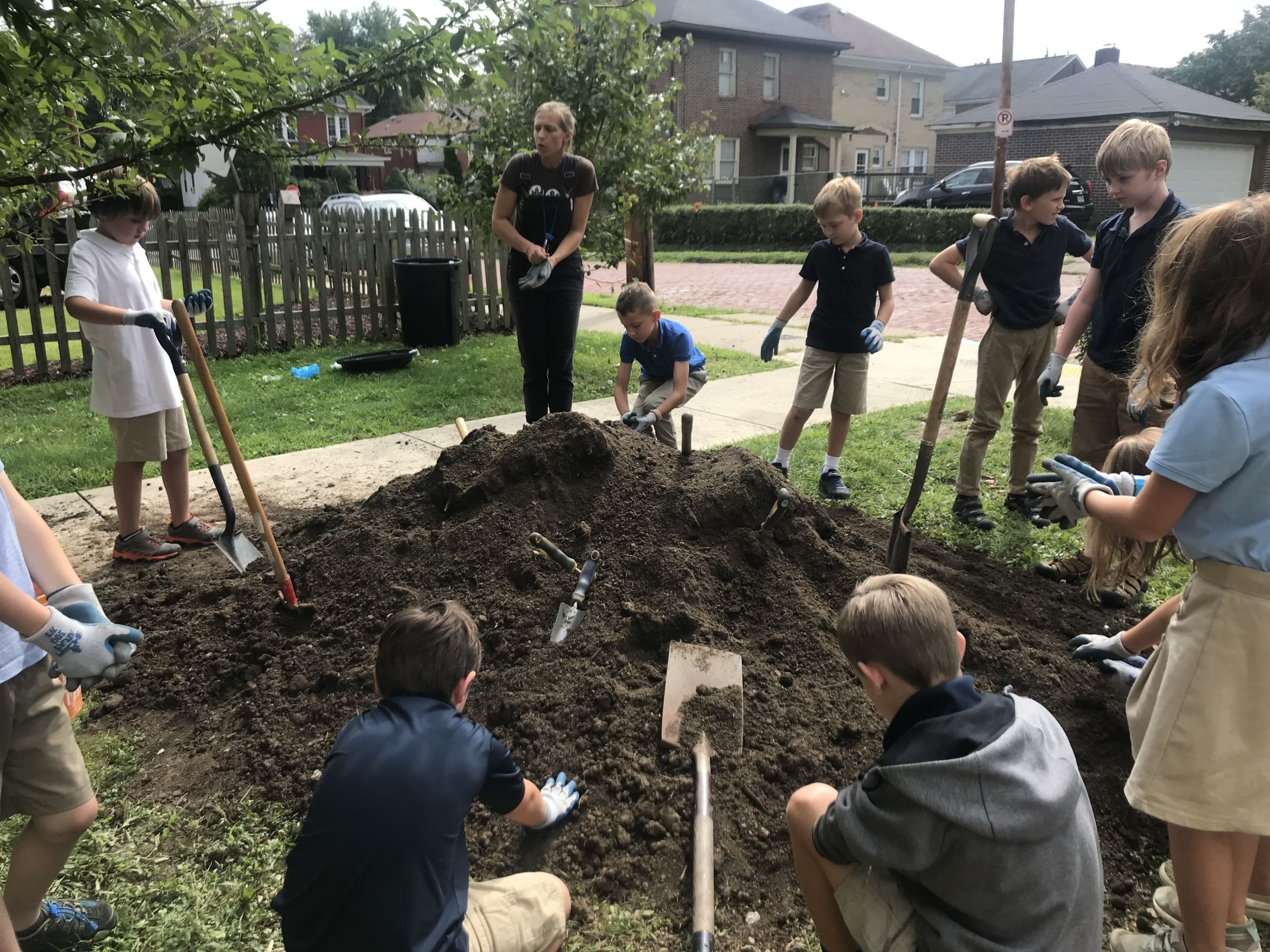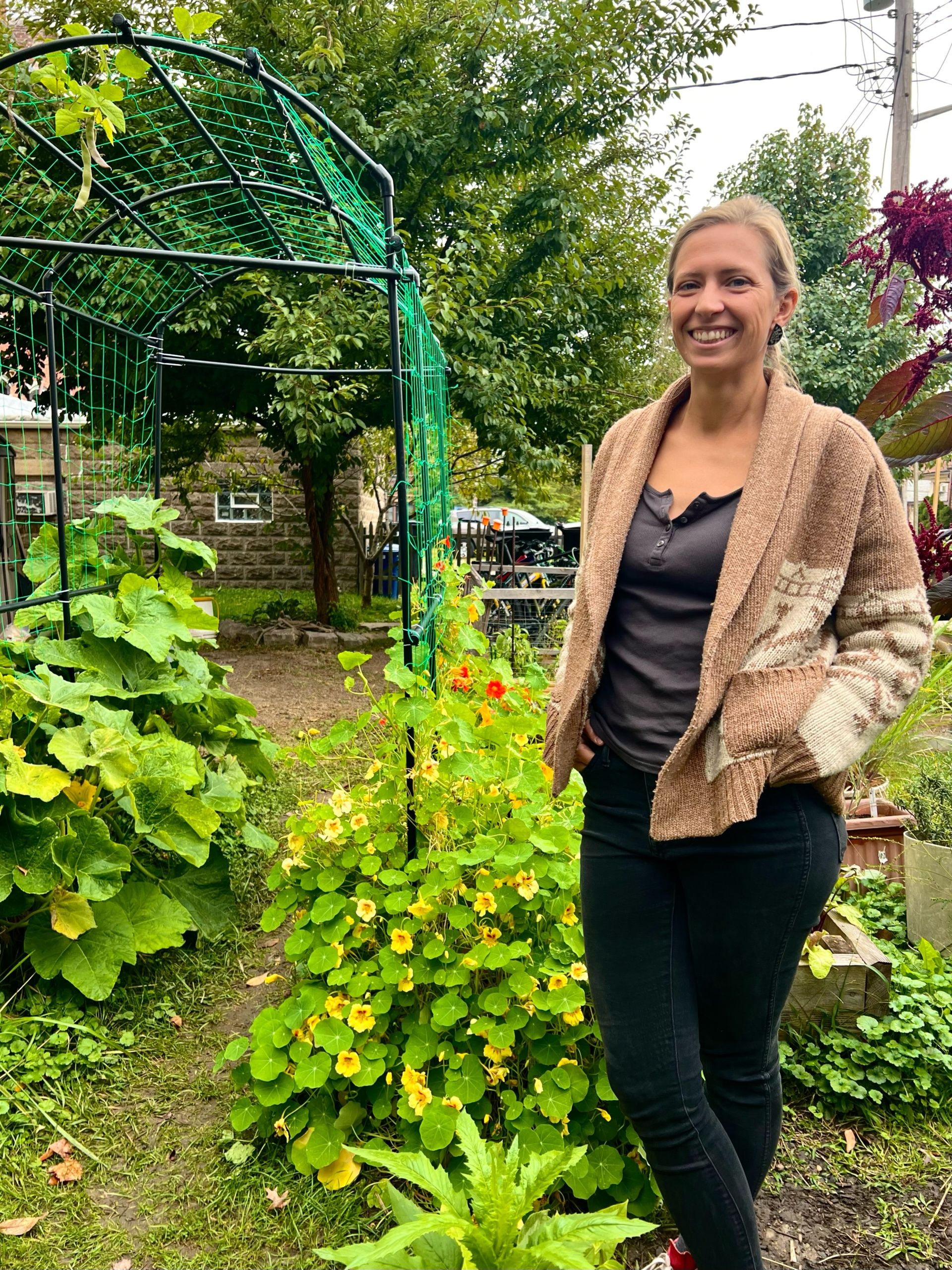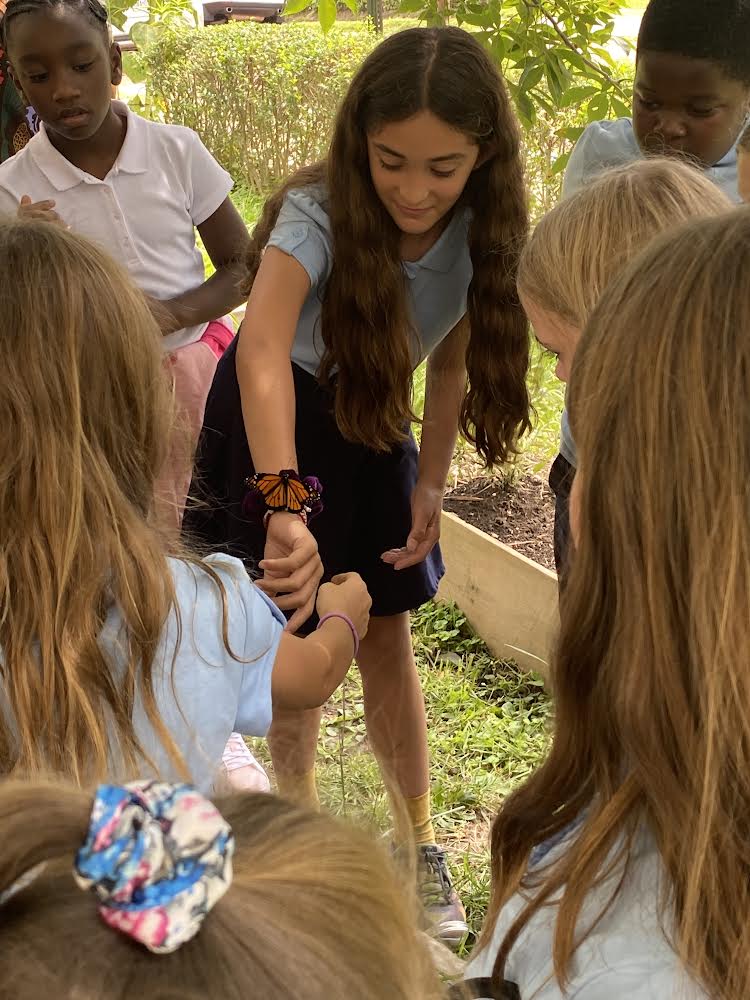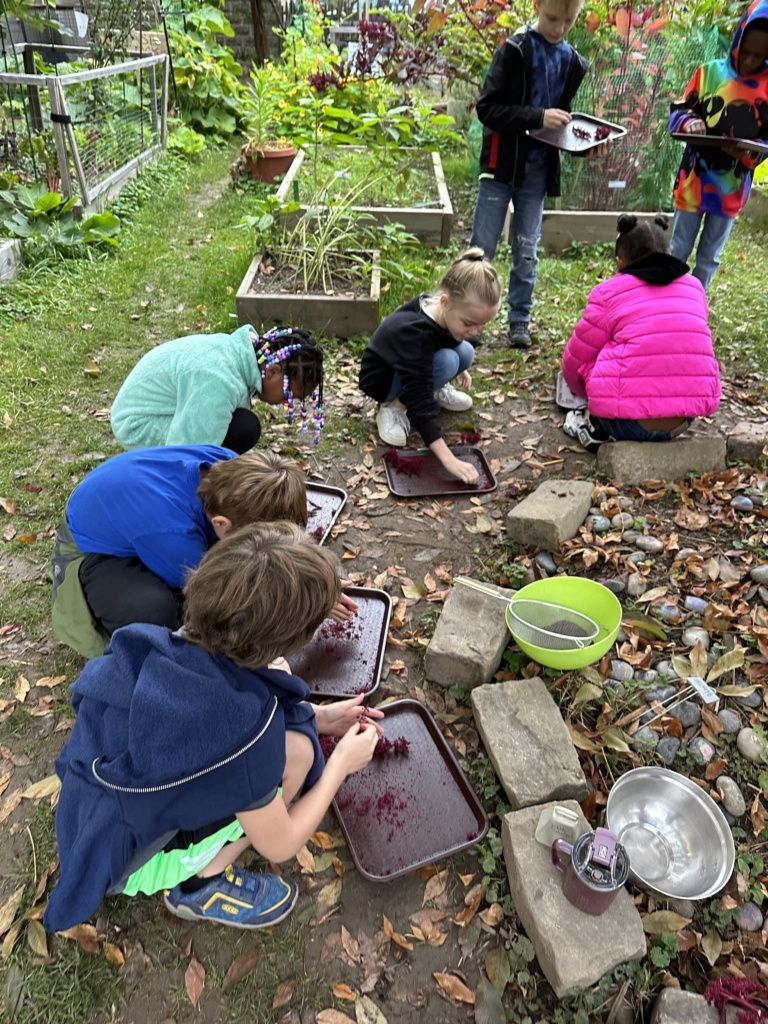This Grower’s Spotlight features Deirdre Keller, an Edible Schoolyard Teacher at the Environmental Charter School (ECS). Deirdre has been teaching at ECS for 12 years, and has been working with the Edible Schoolyard program since Grow Pittsburgh built the garden in 2012. Deirdre now manages all aspects of the garden, from planning and planting to harvesting and cooking. We caught up with Deirdre on a blustery fall day to ask about the impacts of edible education for young learners.


Grow Pittsburgh: Tell us a bit about yourself. How did you get started growing food?
Deirdre: I grew up in Squirrel Hill, and some of my earliest memories were picking the raspberries and parsley that my mom grew in the backyard. Because of those experiences, I knew it was important to me to always have some sort of fresh food growing nearby that I could toss into something I was eating. When I moved into my first apartment, I had an Iguana, so I learned how to grow different greens that he could eat like spinach and mustards.
I’ve tried to grow fresh food at every place that I lived if there was space, but never felt very successful. I always thought that I was bad at gardening, but I kept trying. Sometimes I was able to harvest a small salad or a couple of greens. But it wasn’t until I started teaching third grade at ECS and partnered with Farmer Jim from Grow Pittsburgh in the Edible Schoolyard in 2012 that I started to feel confident gardening.
GP: Why was that partnership important to you and to ECS?
Deirdre: As a teacher I’m always looking for things that engage with my students. I’m constantly asking myself “What are the things that make them light up the most?” and “What do they ask the most questions about?” because that’s where I see the most learning happening. I noticed those moments the most during the garden lessons when Farmer Jim and I were teaching together.
I was somebody who didn’t always connect with school when I was younger, but I know that when I’m doing something with my hands or learning something side-by-side with a peer I’m much more engaged. I saw the same thing happening with my students, plus we got to spend more time outside. We were all having fun, enjoying the fresh air and seeing different aspects of life and growing, and it really clicked with me that having a school garden was important for kids.
After two years of working with Grow Pittsburgh to establish the garden, we started to run it independently. There was a group of teachers who worked together to keep the gardening program running at ECS. It became a part of my personal journey to learn more and more about gardening and how to manage the enormous garden that we kept adding onto. Every year the kids (and the teachers) wanted to try new things so we would add a fruit tree, or build a new garden bed, or find space to try something new that we were excited about.
GP: How much involvement do the students have with the garden?
Deirdre: At our primary building, which is kindergarten-2nd grade, students have a play-based program called Discovery Block. We plant a lot of things that they can pick or gather as they play and snack on. We have optional garden activities for students to participate in, like spreading cover crops or watering. Kids also help with harvesting and collecting food. We try to make that garden a very sensory experience, so we have a lot of things to touch and smell. They’re really into the mint. It always seems to be a big favorite, so we make sure to grow a lot of mint each year. Kids love to forage, and we love to watch them eat things like ground cherries, cucamelons, and cherry tomatoes right off of the plant.
Our intermediate school, which is 3rd-5th grade, is based on the Edible Schoolyard program that started in Berkeley, California. We do a lot of gardening in the spring and fall and focus on cooking throughout the winter. We try to learn a lot about plant identification, life cycles, gardening zones, soil health, composting, and seasonal growing. We spend a lot of time exploring culture and food access through food, and talk about systemic barriers to food access and local food systems. We really want students to understand balance in the ecosystem and community, so we talk a lot about taking care of yourself and the place that you’re in, and positively benefitting the world around you.
GP: Can you share some of your favorite moments with the kids?
Deirdre: I love when I get to see something for the first time alongside students. One year we saw a hummingbird moth in the garden, and it was the first time that we had seen one in person. Those moments that we all say “wow” together are definitely my favorites. I also love watching kids try a food for the first time, especially when they’re surprised at how much they enjoy it. We have nasturtium growing in the garden and kids love to compete with each other to see who can handle the spiciness.
GP: What do you do with all of the food grown in the gardens?
Deirdre: We eat it! Every year we get better and better at utilizing all of the food from the garden as fast as we possibly can. We’re able to harvest food and cook it on the spot. So far this year we’ve made some quick salads, roasted our purple potatoes, and made paw paw smoothies. We’re harvesting amaranth now that we can use to make amaranth bars and butternut squash for soup. In the summer we try to send food home with the families that volunteer in the garden. As part of our community awareness and lessons on balance, we talk to the kids about food insecurity and donate extra food to the Wilkinsburg Food Pantry.
GP: Are families and community members involved in the garden?
Deirdre: Pre-Covid we had a lot of community and family involvement, and we’re working to return to that. We used to host a potluck picnic every October where students would make soup from the garden and share it with their families and it was amazing. We also had a lot of parents come in to help with cooking lessons which was incredible because they brought so many different talents, strengths, experiences with them. When you invite families into your classrooms you really learn a lot about your students, and I’m excited to bring that back. We also have a lot of volunteers who helped with the garden over the summer. Families will send me pictures of them over the break harvesting together, which is great.
GP: Do you have any advice for educators that want to start a garden?
Deirdre: Be mindful of your time and start small. There might be failures, but you should celebrate every bit of growth as a success. When you do struggle, remember that there’s a community of people who can help you if you ask. I’ve reached out to Grow Pittsburgh several times throughout the years for help, and rely on my coworkers and ECS’s huge community of parents and volunteers all the time.
Also, schools need to be committed to the project. Building and maintaining a school garden takes time and money, and schools should be prepared to support the educators who are running it. It’s worth it though, because students really engage with it. I’ve gotten to see students grow so much throughout the years. There’s so much joy and excitement when students are learning in the garden, and I really hope that we can continue to have lots of school gardens in Pittsburgh because they’re wonderful.


Do you know another local grower you’d like to see in the Grower’s Spotlight? Maybe it’s you! Drop us a line to be featured in our next newsletter or on our blog.
